Can You Rank in The Medical Niche if You're Not a Doctor?

SEO is a constantly changing landscape with Google at the helm. What you can and can't do, what you should focus on, and what you should avoid can all change on a whim.
One of the more recent changes started five years ago with the BERT update and has been iterated upon ever since. It introduced two concepts: EEAT and YMYL. These govern Google's focus on how they rank and identify sites today, and prove definitively that not all sites – and not all topics – are created equal.
Primary amongst the topics addressed with these algorithm updates and concepts is the medical field. Everything medical, from health supplements to exercise advice to medical condition reviews to doctor's offices, falls under this oversight.
Some people have looked at the rules and requirements and come to a simple conclusion: it's not worth trying to rank for a medical niche unless you're a doctor in that niche. Others have a different perspective.
Let's talk about what it all means and what you can do for your brand.
 30 Second Summary
30 Second Summary
You need to show expertise, experience, authority and trust when running a medical website. Without being a doctor, you can still succeed by hiring medical professionals to fact-check or write your content. You have to stay focused on your specific niche and match keywords to user intent. Build your reputation by publishing on other trusted sites and getting quality backlinks. Always follow medical regulations and include proper disclaimers. Be careful about health claims you make to avoid legal issues.
Google's YMYL Oversight
First, let's talk about YMYL. YMYL stands for Your Money or Your Life, after the old bandit adage. It's the name Google uses for a broad category of sites that they want to hold to a higher standard.
It's a simple concept with a complicated execution.
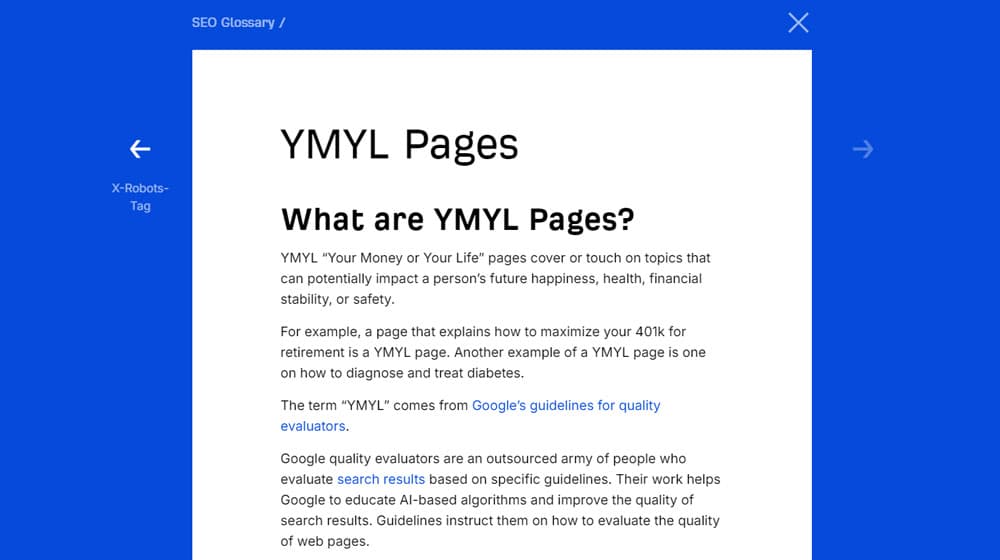
In simple terms, any website that covers topics that have the potential to impact your money or your life is held to a higher standard than sites that don't have that potential. This is, however, both a direct impact and a high level of impact. A video game website delivering reviews of new games does have the potential to impact your money – by helping you decide whether or not to buy a game – but the choice of spending $70 isn't that big a deal. In contrast, a website giving you investment advice on which stocks to buy has the potential to bankrupt a person with bad trades, so it's much more important to do it properly.
Google has two goals here. The first is to put a token amount of effort into their since-removed "don't be evil" mission statement by encouraging trustworthy, accurate, and useful information on the internet. The second is to protect themselves from liability. Section 230 of the United States Communications Act of 1934 basically says that platforms like Google aren't liable for the content they serve, so if someone believes a lie on the internet, they can't hold Google legally liable for the damages. It's an important function to keep the internet working, but it's repeatedly being challenged by certain lawmakers who would very much like to control the online narrative, so Google wants to avoid giving them fuel.
For those of us working on producing content for the internet, it basically just means that if we're in a YMYL topic – which can include international news and politics, scientific developments, government resources, finances, health and safety, nutrition, housing, job searching… the list goes on – we need to pay special attention to EEAT.
So, wait. What is EEAT?
Exploring EEAT with a Medical Site
EEAT stands for Expertise, Experience, Authoritativeness, and Trustworthiness. It's the set of metrics Google has established to judge and rate websites across the board but with special emphasis on YMYL sites.
Your site, and you, as the author of content on that site, need to demonstrate these four attributes.
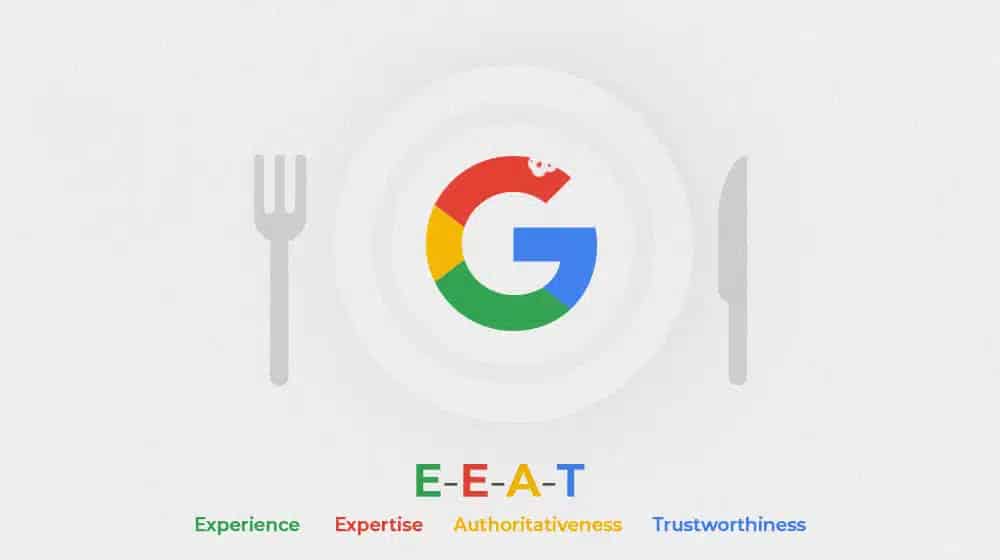
Expertise is about the level of knowledge and skill that you display as the author of the content. For the medical niche, doctors with specialties are the peak, researchers, generalists, and other authorities are coming in second, and medically-adjacent people like nurses are coming in behind them, and unaffiliated people below that. Effectively, the more knowledge and experience you have in a specific subject, the better off you are.
For example, say you were writing a resource about an eye disease like cataracts. The best resource would be an experienced cataract surgeon. Below that would be a general ophthalmologist, and below that, an optometrist. Below that would be general doctors and other medical professionals like nurses. All of these people are at least marginally better than someone like me, who has no experience in the medical field beyond having researched and written about it.
Experience is the newest addition to EEAT and refers to how well the content demonstrates your experience with the subject. This is most relevant for things like product reviews; a review of a product that doesn't display knowledge of ever having used the product is less valuable than a review of a product that displays clear evidence that you own and use the product.
Authoritativeness is a sort of generalized estimate of your reputation, your site, and your content. It's the closest to existing metrics and is at least partially fueled by links; backlinks from authoritative sites boost your own authority. If you, as the author, have published works on the subject, whether it's on other blogs, in books, in medical journals, or other venues, it also adds to your overall authoritativeness. This also has some roots in Google Authorship, the defunct metric of attaching reputation to a sort of public profile. This is all about building your personal brand and your site brand.
Trustworthiness is an evaluation of your site as a whole. How accurate is the information you provide? How reliable is it? How transparent are you about where it comes from and why you're posting it? Sites that pull information from unreliable sources lose their own reliability.
If you feel like these four metrics are essentially the same thing stated in different ways, well, you're not wrong. It's just Google driving home how important it is for these kinds of topics to be covered by people who know what they're talking about and not your crazy uncle who "did his own research" in the seedy underbelly of the internet.
All of this is extremely important in the medical niche, which is why people making medical and medical-adjacent sites (like exercise, supplements, and cosmetics) feel like it's increasingly difficult to exist without being a doctor.
While being a doctor helps, it's far from all that matters. After all, there are many, many instances of "doctors" claiming the title to ride on a reputation they haven't earned, like chiropractors giving medical advice and doctors of philosophy selling supplements.
What can you do to strive to succeed with a medical site without being a doctor?
Making Use of Medical Fact-Checking
If you aren't a doctor, but you want to use a doctor's reputation to help you succeed with your medical site, there's a solution for you: medical fact-checking.
Check out WebMD. WebMD has had a reputation as being one of the biggest medical sites and also one that's very difficult for a layperson to use. The joke of "whatever your symptoms are, it's cancer" because of how WebMD presents information is common, though not actually that accurate in my opinion.
More importantly, check out their posts. Here's one on cataracts.
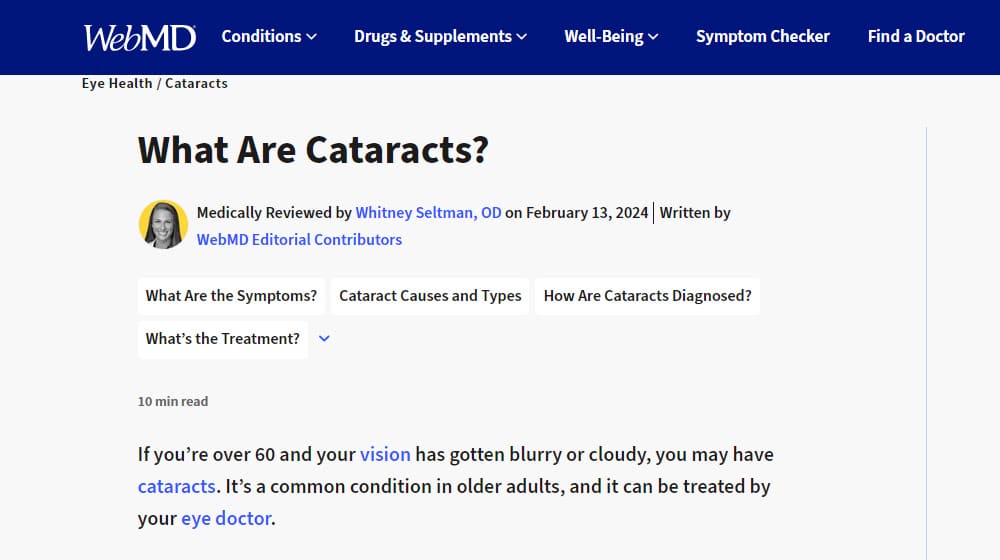
Notice at the top where it has "Written by WebMD Editorial Contributors." That's not an author that can build EEAT. But what is valuable is next to it: "Medically Reviewed by Whitney Seltman, OD". Whitney Seltman is a board-certified optometrist, and has a profile on WebMD to convey that information.
This is one way that WebMD says "look; our information is trustworthy, because we had a relevant medical professional review it." You can then do your digging onto who Whitney is and validate whether or not you believe she's worthy of trust.
You can do the same. Hire a medical fact checker, either through a platform designed for freelance tasks like Kolabtree or Upwork, by posting a job listing, or even by reaching out to local medical professionals and asking if they'd be willing to fact check for you for a fee.
Pay Attention to Regulations and Compliance
This second tip is less about SEO and more about making sure you aren't legally liable for the content you post. I mentioned Section 230, but that doesn't protect blogs and websites, just platforms. Google can't be held liable for the things you post, nor could Facebook, but you sure can. If you give out advice that injures someone, financially or physically, you're open to legal ramifications.
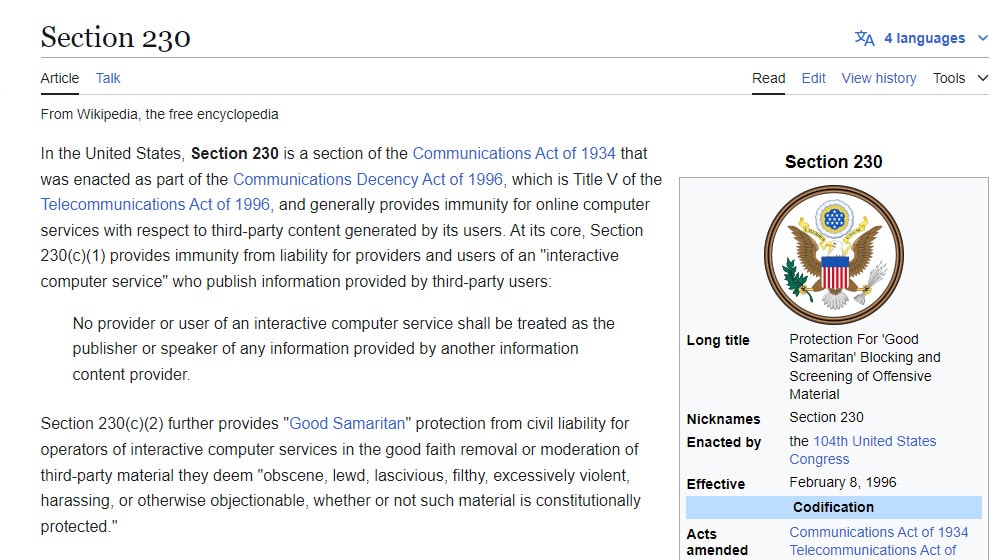
There are a lot of different regulations and restrictions on the things you can say and the claims you can make. It's why so many supplements have a disclaimer like "This statement has not been evaluated by the Food and Drug Administration. This product is not intended to diagnose, treat, cure, or prevent any disease." Even in cases where there may be valid reasons to believe it can work, like studies, until it receives actual approval, you can't make those claims.
Follow Best Practices for Medical Content
The meat and potatoes of SEO for medical (and other YMYL topics) content is about creating reliable, trustworthy information. Some of the most important best practices include the following.
Tightly focus on your specialty and niche.
You don't go to a plumber when you need a swarm of bees removed from your backyard, you don't go to a beekeeper when you need a hernia repair, and you don't go to a surgeon when you need therapy. Your site needs to have some kind of focus, whether it's nutrition, exercise, a specific kind of medicine or physical specialty, or whatever else.

One of the biggest issues with YMYL medical sites is sites that try to put one name and one authority on way more than one person's knowledge. Ideally, you either do the WebMD route with no attribution but specialists as fact-checkers, or you hire or pay for various specialists to use their names. You need every post to have individual trust in the topic.
Use keywords that match user intent and content focus.
I will never stop harping on about user intent. It's not enough to be talking about, say, a medical condition; you need to have some understanding of why a user is there. Are they learning about it? Do they want home treatment options? Do they want to know if it's serious enough to rush to an emergency room?
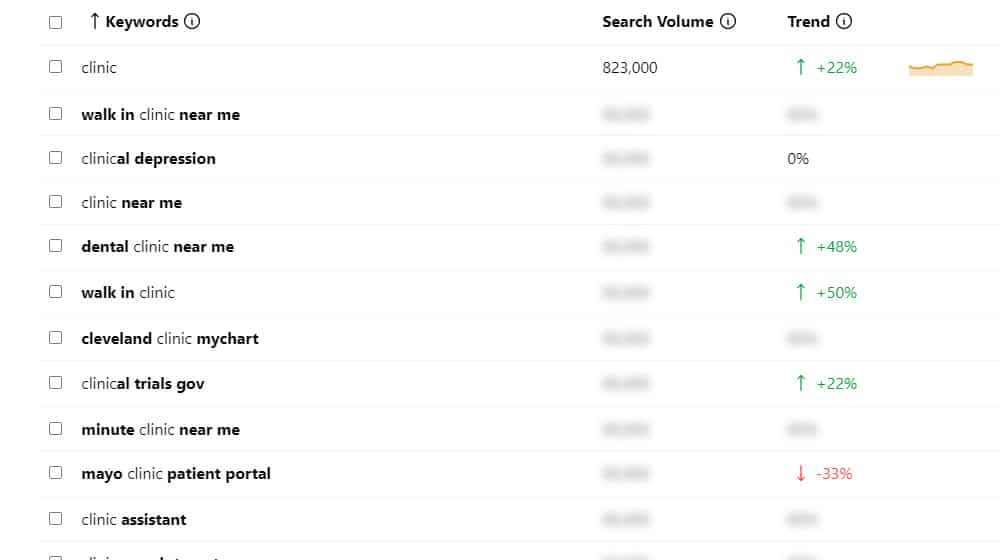
You can try to provide all of this in one post, but it's often better to split into several for different intents. Google wants to help people find what they're looking for, not necessarily find a large, generic page they have to search through in hopes that the information they want is on it.
Part of building up EEAT is building up a reputation, and that means spreading your name around.
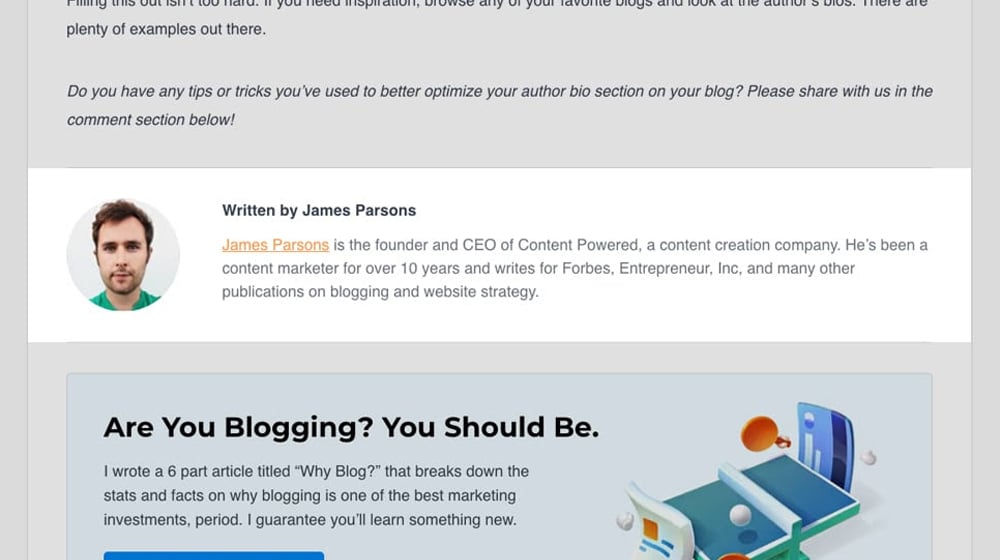
This is impossible if you aren't publishing content under your own name, but if you are, you can contribute to other sites or guest post under your name and build your authority elsewhere.
Build backlinks from other reputable niche sites.
Backlinks make the world go 'round and will forever be a key part of SEO.
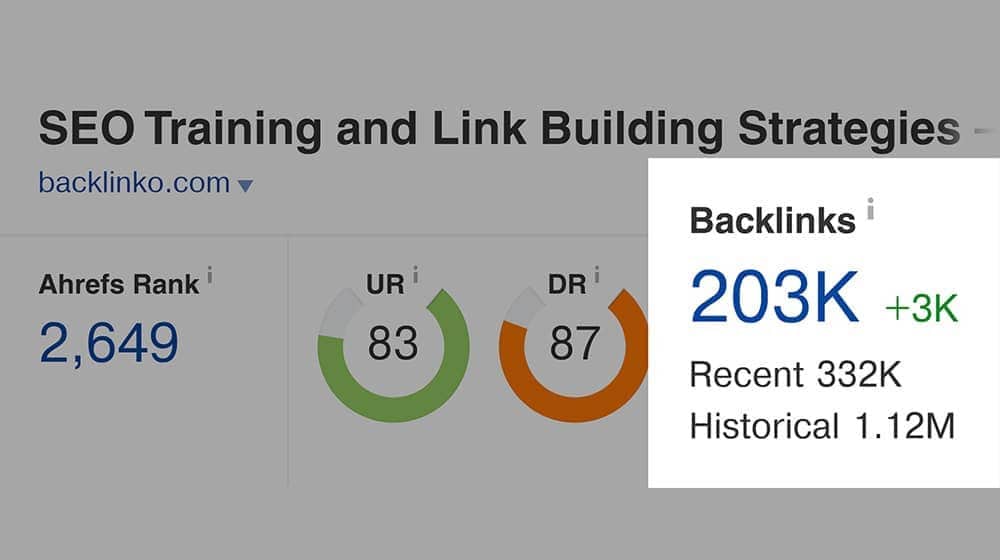
Look for other sites in medical and related niches that can have a valid reason to link to your site, and build links on those sites. The goal is to piggyback on their reputability; after all, if they trust you enough to link to you, you must be doing something right.
Hire medical professionals to write for you.
If you aren't a doctor but definitely want to be in a medical niche, and you desperately need the reputation boost of a doctor on your side, pay one to write for you. Or pay one to put their name on your content. It's an instant authority boost. You only potentially run into trouble if you start publishing things as if the doctor said them when it's counter to what they would actually say, but that's easy to avoid.
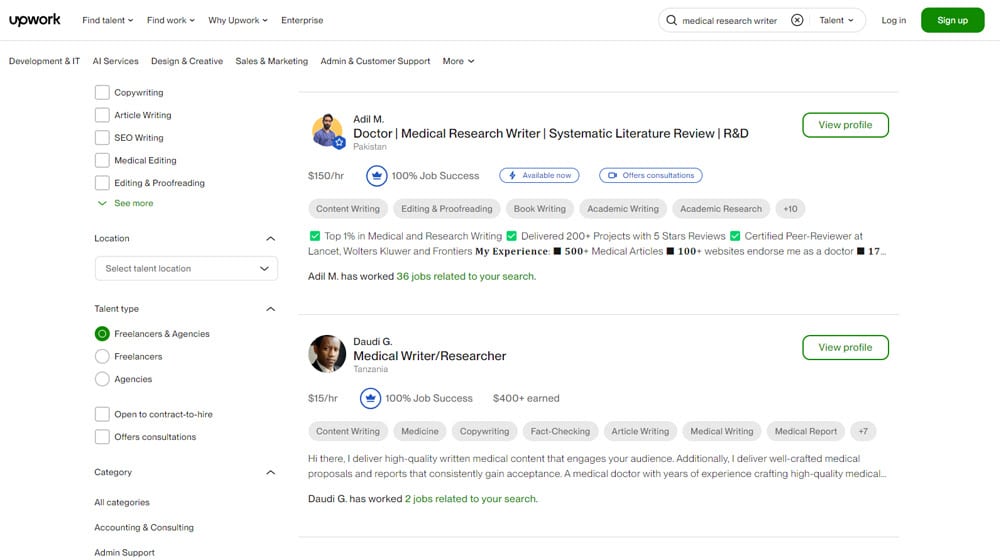
If you keep all of this in mind, then sure, you can build a site in a medical niche without having to be a doctor yourself. It's definitely possible, and many large medical sites are run by non-doctors as it is. It's just a very high bar to clear, so whether or not it's worth the effort is a decision you need to make for yourself.



 30 Second Summary
30 Second Summary



Comments